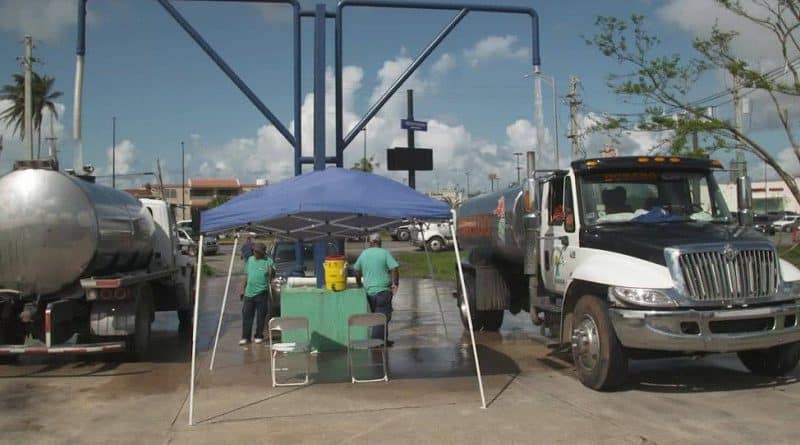
After more than three weeks after hurricane Maria hit the island of Puerto Rico, about 35% of the island’s residents – U.S. citizens – remain without safe drinking water. People are desperate to collect water from wells in the area of contaminated groundwater Dorado.
In 2016 Dorado was included in the list of dangerous areas in the framework of the Federal program of the US Superfund, which is designed to Finance the cleanup of places contaminated hazardous and polluting substances.

Protection Agency U.S. environmental (EPA) said that the water in Dorado was contaminated with industrial chemicals, including tetrachloroethylene (PCE) and trichlormethane (chloroform), which «can have serious health consequences, including liver damage and increased risk of cancer development.»
66-year-old resident of Puerto Rico , Jose Luis Rodriguez so desperately needs water that this news didn’t scare him. «I have no choice, he said. Is the only option that I have.»
Residents like Rodriguez, fill small bottles from a hose in the Dorado and put them in their vehicles. Large trucks carry water tanks to the needy in other places.
However, it is unclear whether there are risks to human health in this particular well. EPA said it plans to conduct testing in the area this weekend.
Martin Smith, Professor of toxicology at the University of California at Berkeley, told CNN that the level of PCE and chloroform are mostly safe for human consumption.
«Drinking water issues there would be if it were the only chemical in it,» he said. The problem with the Superfund sites, he said, is that all unknown components in the water. He stressed that boiling water will reduce the likely harm.
In any case, even if the information about the dangers of water from wells in the Dorado is confirmed, the Puerto Ricans are unlikely to abandon it. Many of them simply have no alternative.
In Puerto Rico, «36% of people do not have clean drinking water, and almost half have no communication,» @DavidBegnaud reports. pic.twitter.com/f9Nmi28Pbt
— CBS News (@CBSNews) October 13, 2017